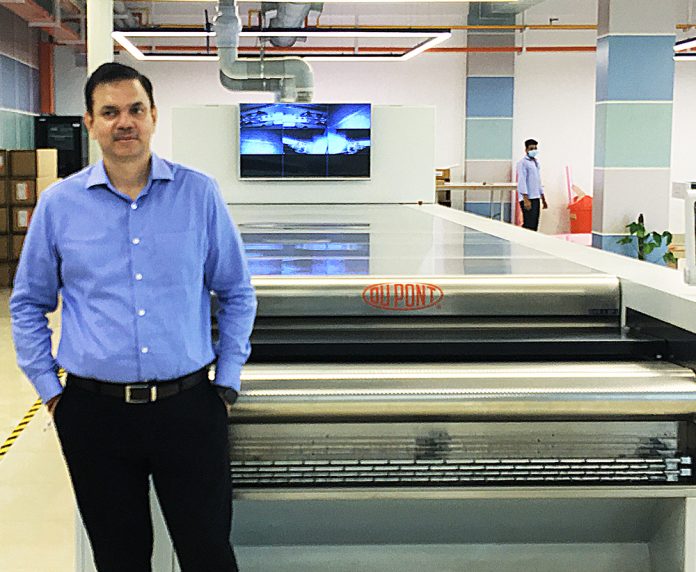
We first met Noida-headquartered Afflatus several years ago when it was a prepress house supplying high-quality gravure cylinders for the flexible packaging of the country’s leading brand owners. The company is the largest cylinder maker in India with plants in Noida, Chennai, Vapi, and Kolkata. It’s an organization that has always been in a growth mode while at the same time it seeks to achieve global standards in color management, automation, and sustainability.
When we wrote again about Afflatus in 2016 it was after it had installed the Think Labs robotic cylinder preparation and engraving system. The Think Labs FX2 is not only productive with its automation but a very high-quality engraving system for legible text in small sizes and high contrast in halftone images. At the same time, since it is capable of reducing cell depths to as little as 5 to 7 microns. It has achieved excellent results at cell depths of 12 microns with the benefit that the same color densities can be achieved using much less ink on the modern gravure presses running at 300 and 450 meters a minute and even higher. The sustainability of flexible packaging improves with the reduction of the ink layer by 20% and parallel reductions in the use of solvents and volatile organic compounds, while the curing or drying process requires less heat further lowering the carbon footprint of the entire process.
Afflatus enters flexo prepress
After our story about the FX2 robotic system, we wrote about Afflatus investing in its first flexo prepress system, the Esko CDI Crystal 5080 XPS imager just before the LabelExpo India event that took place in Greater Noida in 2018. This was purchased and installed not only with the full suite of Esko software but also with the fully automated DuPont Cyrel 3000 modular processing line. Only recently were we able to visit the Afflatus plant in Sector 68 in Noida where we saw what we can only describe as the most magnificent flexo prepress installation that we have ever seen.

Every aspect of the flexo prepress and plate making system is automated with cameras mounted within the DuPont 3000 processing line for visual monitoring on a giant monitor. The system with its highly automated Kongsberg table for cutting flexo plates is extremely productive and produces more than 120 photopolymer flexo plates daily.
Our conversations with Afflatus vice-president Arun Pandey are generally wide-ranging across technologies and industry concerns from sustainability to human resources and even the overly competitive pricing that has now come to the flexo plate market as well. While he says that flexo plate pricing could be better structured by the industry, it is clear that Pandey is looking quite far ahead in terms of global quality and sustainability issues for both gravure and flexo.
Automation, digital ERP, an app and AI are being put to use
Discussing the supply of cylinders and plates during the pandemic lockdowns and after, Pandey described in considerable detail the systems and infrastructure the company was able to put in place to combine work from home for skilled technicians in prepress with that of the strictly organized hands-on technicians who had to man or simply monitor the output devices and processing equipment. “The installation of the second Think Labs automated robotic system at the Noida plant, for cylinder prep and engraving and finishing certainly helped, as did the automated Esko and DuPont systems for flexo, as did many of our significant precautions and arrangements over the past 19 months. We were also fortunate to have a highly skilled and compact workforce,” he said.
Another achievement in the past couple of years is the integration of Afflatus’ production floor across its plants country-wide. Through its digital interface with all the production units there is better control on the consistency of the output and timely commitments to customers. This has been recently been taken a step further, with the company having its own app to keep clients and the management and production teams updated on every SKU’s status. The company has incorporated several innovations including chips embedded to identify and track and trace each cylinder. At our meeting, Pande explained his vision to take the automation concepts further by adding artificial intelligence to make the current system more productive and efficient.
This article is published in the November printed issue of Packaging South Asia to be mailed on 4 and 5 November 2021.










